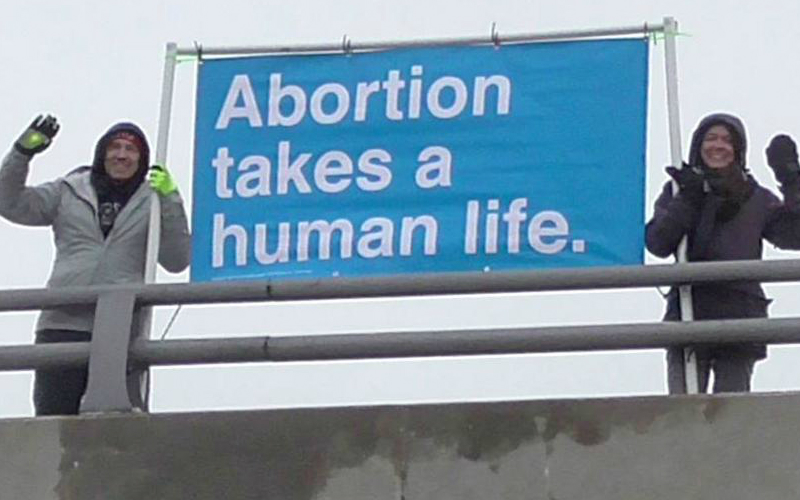Pro-lifers in Kansas clearly were up against a brick wall. The amendment – which was intended to nullify a previous Kansas Supreme Court decision in 2019 that protected abortion rights – would have forbidden use of state tax dollars for abortion; and made it clear there is no right to abortion in the Kansas Constitution. But the amendment failed by a substantial margin: with practically all votes counted, the measure lost by more than 17 points.
Brittany Jones of Kansas Family Voice tells AFN that leaves the state in a sad position in terms of saving the lives of unborn babies.
"We have over 25 pro-life laws that are on the books that are currently presumed unconstitutional and unenforceable," she laments. "There have already been two laws that have been struck down – our live dismemberment abortion ban, which is a second- and third-trimester procedure; as well as our clinic health and safety standard."
In the wake of the amendment's defeat, her concern is that Kansas will continue as a destination state for those who live in pro-life states but will travel to Kansas to abort their child.
Down to defeat … why?
Several opinions have been expressed about why the amendment failed. Dr. Michael New, an associate scholar at the Charlotte Lozier Institute, contends proponents weren't able to make clear to voters specifically what would be accomplished if it passed.

"Parental involvement laws have a clear implication; and laws to prevent state Medicaid programs using taxpayer dollars to fund abortion have implications that are clear," he tells AFN. "It was exactly what would happen if this had ever passed – and I think that it made it possible for our opponents who support legal abortion to sort of demonize and caricature this amendment."
Still, Dr. New expects future success in Kansas, provided the different elements are dealt with in an incremental and clearly understandable fashion.
Rob Chambers of AFA Action argues the amendment failed due to what he calls a "gross misinformation campaign" launched by abortion proponents … but also surprisingly by some abolitionists and religious leaders.
"[They] claimed the amendment should not have allowed the legislature to regulate abortion and should have instead abolished abortion altogether," he explains – the result being that those efforts kept in place the Kansas court's ruling in 2019 that declared abortion is a fundamental right.

"It is quite evident here that what we are seeing in Kansas is the [damage] that abolitionists are having at the ballot box," says Chambers. "They have set back the straightening out of the Kansas constitution years."
"Had pro-life voters voted this in, it would have corrected the 2019 decision," he adds. "Now, what has to happen is another constitutional amendment to basically either do the same thing – or just flat out say that all life is worthy of protection."
Lies, lies, lies
Laura Echevarria of the National Right to Life Committee tells AFN the amendment's defeat isn't a big surprise, considering the lies by the opposition that were promulgated by the media and the abortion industry.
"[They] stated that women would die because of ectopic pregnancies and … couldn't be treated for miscarriages – or … that women would be prosecuted," the NRLC spokeswoman says.
But it's common for the abortion cartel to lie, according to Echevarria: "If the abortion industry actually had to abide by the truth, they wouldn't get very far."
Still, she remains optimistic, contending the battle for truth is not over: "Once the people of Kansas realize the extent of the abortion industry's lies and … the extent of the misinformation campaign that the abortion industry and its allies engaged in, I think we will see some changes."
And another reason …
One pro-life group in Kansas contends the election system is at fault in Tuesday's defeat of the constitutional amendment. Mark Gietzen of the Kansas Coalition for Life explains the state legislature passed a law permitting "ballot harvesting" – and Secretary of State Scott Schwab tweaked it, he says, to make it even worse: allowing ten ballots per person under their own name and ten under other names.
"Your only limit was the limit of your imagination to come up with another fake name," he exclaims, "and [the law] was wide open to using fake names, no address needed. [Opponents of the amendment] were putting these in unattended ballot drop boxes … and as long as the name doesn't show up more than ten times in any group of ballots, you're good to go."
And the election map, he suggests, shows the result of ballot harvesting in the large population counties – not a genuine shift of voter sentiment. "You lose control of your elections, you lose control of democracy – and that's where we are here," Gietzen concludes.
Editor's Note: AFA Action is an affiliate of the American Family Association, the parent organization of the American Family News Network, which operates AFN.net.







